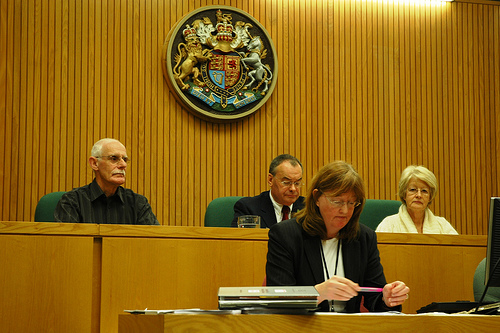After 2 hours of the first round of jury selection, everything seemed to be copacetic. The group of 16 prospective jurors were saying all the right things, i.e., “Yes, I can be fair and impartial” and by all accounts, seemed to be an open-minded group who would give the plaintiff a fair shot.
During a break in jury selection, my client (the plaintiff) turns to me with an expression of pure delight on his face and says, “I can’t believe how well this is going.” I think for a moment and respond that “I’m probably not doing my job.” I explain that the overtly reasonable and fair responses from the prospective jurors are likely just a façade and that I haven’t broken through the surface to get to their real feelings.
Ask for Brutal Honesty
Once jury selection resumes, I ask the prospective jurors for brutal honesty—“If my breath stinks, it’s okay to tell me.” I share with the prospective jurors a little secret: “If you talk, you walk, but if you say nothing, you’ll stay.” I tell the prospective jurors that there are many people in my family who don’t believe that it’s right to sue someone and it’s perfectly okay if they feel the same way.
Once I give the prospective jurors permission to bad-mouth personal injury lawsuits, a laborer in the front row finally speaks up, “I can’t believe you’re wasting our time here—not just my time, the time of everyone in this courtroom”. Rather than disagreeing, I thank Joe Six-Pack for his brutal honesty and give him praise and gratitude for his courage to be the first to speak up. Joe Six-Pack has done exactly what I asked him to do—he was brutally honest–and I ask the others, “How many agree that I am wasting your time?”
The Floodgates Open
Now, the floodgates open. A neatly dressed middle aged female in the back row agrees emphatically with Joe Six-Pack, “He’s right. You’re wasting our time.” I thank the prospective juror for her courage in speaking up and with palms open and with a welcoming gesture of my arms, I encourage ask her, “Tell me more.” The female juror shares her view that personal injury law raises the cost of insurance and hurts everyone.
Once I’ve elicited all of the bad feelings that she has about personal injury law, I ask others to join in. 3 hands go up, and the anti-plaintiff jurors are just raring to share their feelings—specifically, that personal injury lawsuits are almost always just frivolous attempts to extract money from a deep pocketed doctor or hospital and they agree that they will begin the trial with a significant leaning in favor of the defense.
Following 15 minutes of letting the anti-plaintiff jurors speak, the trial judge interrupts and says to the group, “You’re excused” and politely sends them home. Without using a single peremptory challenge, the anti-plaintiff jurors are sent home with little effort. I simply gave the prospective jurors permission to bad-mouth my client’s case and once they knew it was okay (and that I wanted them to do it), they didn’t hesitate.
You Want to Poison the Jury
Many trial lawyers still believe that it is bad for prospective jurors to bad-mouth your case during jury selection. These old-school lawyers believe that such negative talk during jury selection “poisons the jury” and convinces the other jurors that that personal injury lawsuits are frivolous. I COULDN’T DISAGREE MORE.
You want prospective jurors to bad-mouth your case during jury selection. You won’t be able to identify and remove anti-plaintiff jurors unless you can get them to open up and share their true feelings. If you don’t get the prospective jurors to share their true feelings about personal injury law during jury selection, you can be damn sure they’ll share their true feelings during jury deliberations…and you won’t like the result.
Getting the Jurors to Open Up
To get prospective jurors to open up, I sometimes share that I am also very skeptical of medical malpractice claims when new clients are first referred to my office. I share with the prospective jurors that I get calls every day from people who want to sue and we decline 99% of the new claims. (by the way, this is true—honesty is critical in jury selection).
Once the prospective jurors learn that I share their feelings about medical malpractice claims—at least the vast majority of new claims—they understand that I have a very high threshold of merit and I am not another “ambulance chaser”. Building a rapport with jurors during jury selection is critical, and by giving the prospective jurors permission to be critical of your case, you will get them to share their true feelings.
